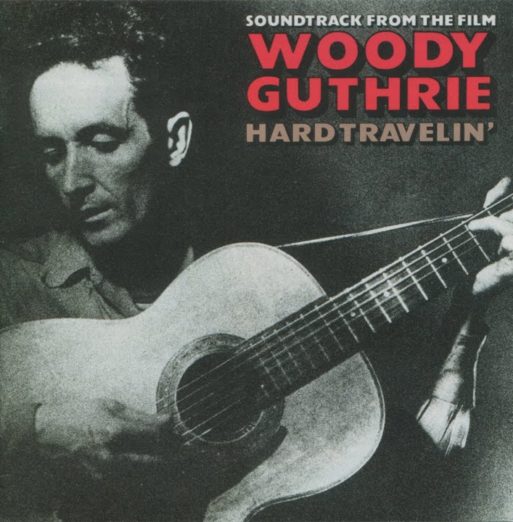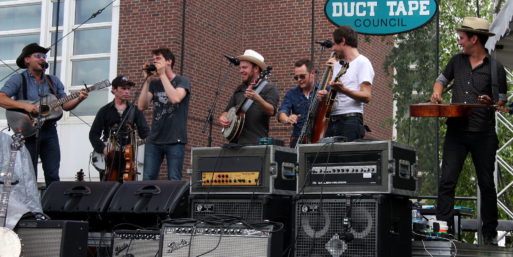 Over Memorial Day Weekend I chanced upon an eclectic album, Song of America, produced in 2007. There are other collections of Americana that attempt to tell the history of our country through music. But none of those are comprised of an array handpicked by a former U.S. Attorney General –Janet Reno — and a veteran Nashville indie-punk troubadour –Ed Pettersen — who happens to have been married to Reno’s niece. (Reno died from Parkinson’s disease in 2016.) Together they whittled over 200 contenders down to 50 newly recorded covers for the 3 CD set.
Over Memorial Day Weekend I chanced upon an eclectic album, Song of America, produced in 2007. There are other collections of Americana that attempt to tell the history of our country through music. But none of those are comprised of an array handpicked by a former U.S. Attorney General –Janet Reno — and a veteran Nashville indie-punk troubadour –Ed Pettersen — who happens to have been married to Reno’s niece. (Reno died from Parkinson’s disease in 2016.) Together they whittled over 200 contenders down to 50 newly recorded covers for the 3 CD set.
The result? Fresh interpretations of songs that zoom into multiple perspectives of Our-Country-‘Tis-of-Thee’s diversity and challenges faced from 1492 to the new millennium.
The Enduring Power of Song
One selection in particular begs revisiting today, in light of the immigration angst we, as a nation, are muddling through. The protest ballad “Deportee” (lyrics written by legendary folksinger Woody Guthrie) tells the story of the January 28, 1948 crash of a plane near Los Gatos Canyon in Fresno County, California. All aboard died: four Americans and 28 migrant farm workers who were being deported from California back to Mexico.
The sky plane caught fire over Los Gatos Canyon
The great ball of fire it shook all our hills
Who are these dear friends who are falling like dry leaves?
Radio said, “They are just “deportees”
Guthrie was especially struck by the fact that national radio and newspaper coverage of the plane crash did not give the names of the deceased Mexican farm workers, but instead referred to them merely as “deportees.” The American flight crew and security members were identified in the news reports.
The protest song started as a poem, which, with only rudimentary musical accompaniment, Guthrie chanted rather than sang. In the poem, Guthrie assigned symbolic names to the dead:
Goodbye to my Juan, goodbye, Rosalita,
Adios mis amigos, Jesus y Maria;
You won’t have your names when you ride the big airplane,
All they will call you will be “deportees”
A decade later, Guthrie’s poem was set to music and given its haunting melody by a schoolteacher named Martin Hoffman. Shortly after, folk singer Pete Seeger, a close friend of Guthrie’s, began performing the song at concerts. Through the 60s and 70s over 50 artists released “Deportee,” including Guthrie’s son Arlo, Joan Baez and Judy Collins. Bruce Springsteen sings it on his 2000 tribute-to-Woody album.
Reno chose Old Crow Medicine Show, an Americana string band based in Nashville, to reinvent “Deportee” for her album. The song ends with questions she no doubt thought were important to raise in 2007.
Is this the best way we can grow our big orchards?
Is this the best way we can grow our good fruit?
To fall like dry leaves to rot on my topsoil
And be called by no name except “deportees”?

Old Crow Medicine Show
Why It Still Resonates
Similar questions bear repeating today, as immigrants who have lived longer in the United States and have established deep roots have increasingly become targets for deportation. According to the New York Times, over the month of March, 4 in 10 deportation cases filed in immigration court involved people who had been in the U.S. for 2 years or more. Two in 10 involved people who had been in the U.S. for 5 years or more.
As the Trump administration continues to strong-arm immigration policy, the New York Times revealed in April that, since October, more than 700 immigrant children have been taken from parents at the U.S. Border, including more than 100 children under the age of 4.
As disturbing as these statistics are, the revelation of the name of a mother separated from her baby made the crackdown even more heart-wrenching:
“A young woman named Mirian arrived at the Texas border carrying her 18-month-old son. They had fled their home in Honduras through a cloud of tear gas, she told border agents, and needed protection from the political violence there.
“(Mirian) had hoped she and her son would find refuge together. Instead, the agents ordered her to place her son in the back seat of a government vehicle, she said later in a sworn declaration to a federal court. They both cried as the boy was driven away.”
I can’t help but visualize real people who go by the names Juan, Rosalita, Jesus, Maria — and Mirian — as I listen to Old Crow Medicine Show’s performance of “Deportee” in the YouTube link below. I also find myself wondering what our current Attorney General’s playlist of American songs might be.

 “Deportee” by Woody Guthrie
“Deportee” by Woody Guthrie


 “Help Me, Helen”
“Help Me, Helen”
 Recovering Cremation Remains After the Los Angeles Fires
Recovering Cremation Remains After the Los Angeles Fires















